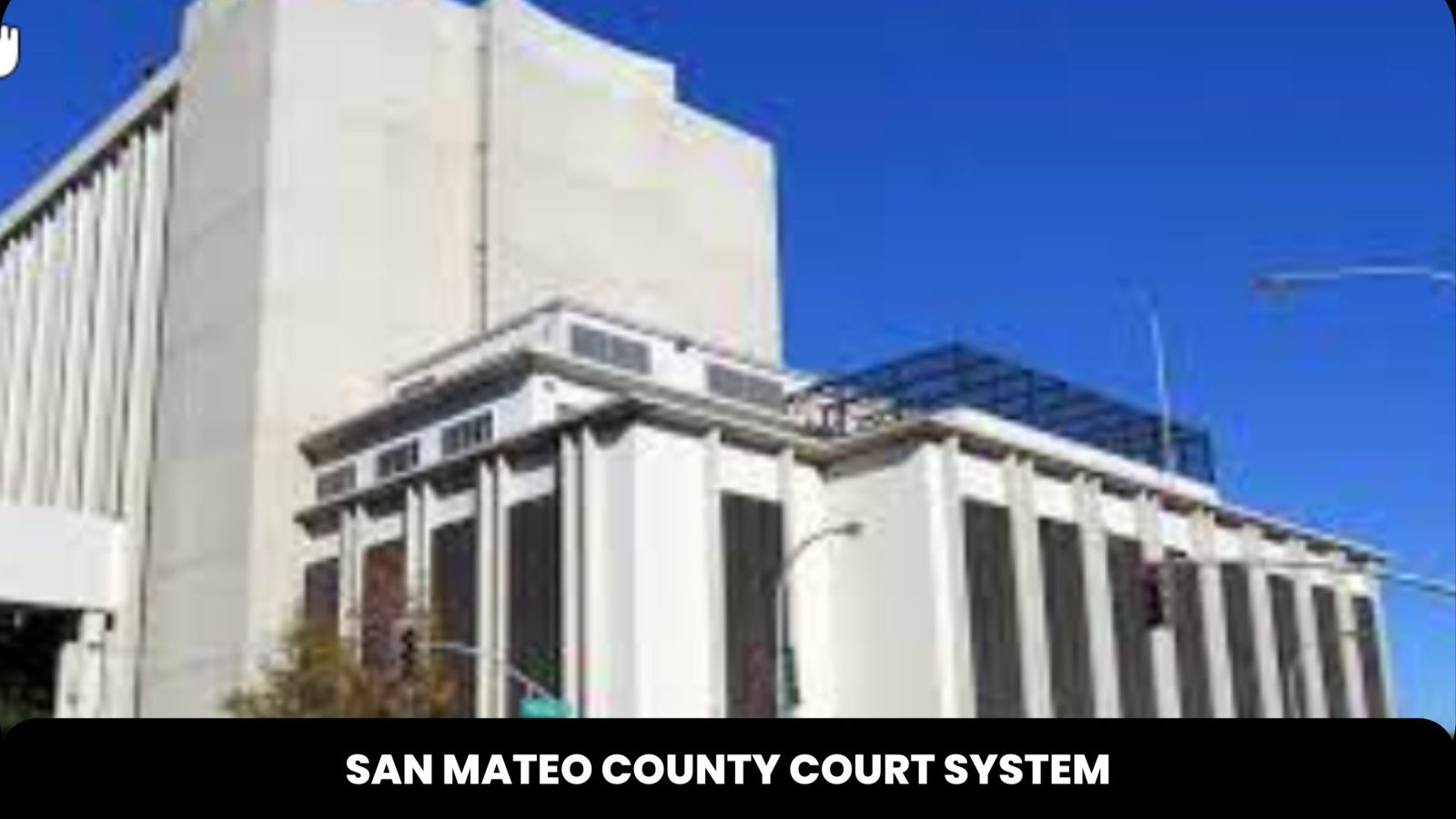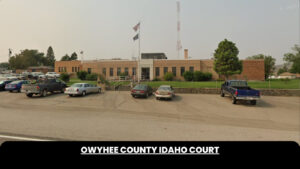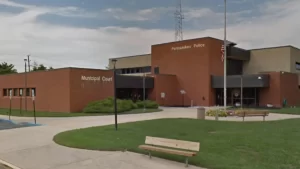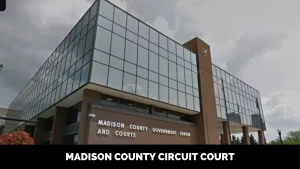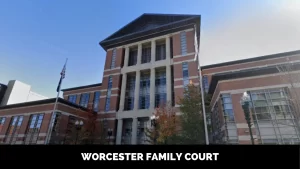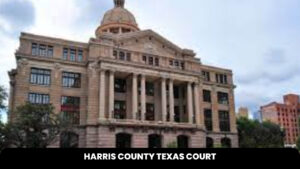San Mateo County Superior Court
The San Mateo County Superior Court is part of the California state court system and serves San Mateo County in the San Francisco Bay Area. As the trial court for the county, it handles a wide range of civil, criminal, family, probate, traffic, and other cases. The court has a long history dating back to the 1800s and strives to provide fair, efficient, and accessible administration of justice.
San Mateo Superior Court Location and Address
The San Mateo County Superior Court has multiple locations across the county. The main courthouse address is:
Redwood City, CA 94063
- Hall of Justice Courthouse: 400 County Center, Redwood City, CA 94063
- Northern Branch Courthouse: 1050 Mission Road, South San Francisco, CA 94080
There are also juvenile and family law courtrooms located at the Youth Services Center in San Mateo. The court occasionally conducts proceedings at alternate locations as needed.
San Mateo Superior Court Phone Number
The main phone number for the San Mateo County Superior Court is (650) 261-5100.
This Number Can Direct You To Specific Departments Or Courthouse Locations.
Standard Hours Are 8:00am To 4:00pm, Monday Through Friday. Some Departments May Have Extended Hours Until 5:00pm. Be Sure To Check The Court’s Website For Up-To-Date Hours
History and Background of San Mateo County Superior Court
San Mateo County was formed in 1856 from the southern part of San Francisco County. The county Board of Supervisors established the San Mateo County Court of Sessions in 1857 to handle local judicial matters. In 1879, a new California constitution reconstituted the courts, creating superior and municipal courts. The San Mateo County Superior Court traces its roots to the superior court established at that time.
Over the decades, the court expanded to keep pace with the county’s growing population. It currently operates out of two main courthouse locations in Redwood City and South San Francisco. The Gov. Robert F. Peers Courthouse in Redwood City opened in 1969, replacing an earlier courthouse building from 1910.
Jurisdiction and Caseload San Mateo Court
As a superior court, San Mateo County Superior Court is a court of general jurisdiction handling matters beyond those under the purview of lower municipal or justice courts. It has authority over all felony criminal cases, civil cases with more than $25,000 in dispute, family law cases like divorce and child custody, probate matters, juvenile cases, and appeals from lower courts.
The court has over 30 judicial officers and handles over 100,000 cases each year across its civil, criminal, family, probate, juvenile, and appellate divisions. Its caseload includes everything from major civil litigation involving corporations located in the county to misdemeanor DUIs and traffic infractions.
The Structure of the San Mateo County Superior Court
- The different divisions of the court
- The judges and other personnel
- The physical layout of the court
Court Locations of San Mateo County Superior Court
- Court Branches and Locations:
- Southern Branch: Located in Redwood City.
- Northern Branch: Located in South San Francisco.
- Juvenile Branch: Located in San Mateo.
- Jurisdiction:
- Cases are divided either geographically between the Northern and Southern districts or by age (Juvenile).
- The Northern District’s jurisdiction covers matters from the county line south to (and including) Burlingame.
- Previous Locations:
- In the past, the court was housed in five locations.
- In addition to the current three branches, there were the Central Branch (in San Mateo) and the Southern Branch Annex (near the Southern Branch).
- Changes and Closures:
- The Central Branch was closed in 2013 due to budget cuts.
- The Southern Branch Annex, which served as the countywide Traffic Court, was given to the County in 2019 and demolished to make space for County Office Building #3 (COB3).
- Some employees from the Hall of Justice will be moved to COB3 after its completion, and the vacated space in the Hall of Justice will be used for Traffic Court operations.
- Traffic Court operations temporarily moved to the Northern Branch during this transition.
San Mateo County Superior Court – Central Branch
Address and Contact Information
The Central Branch is located at 800 North Humboldt Street, San Mateo, CA 94401. The main phone number is 650-363-4300 for traffic cases.
Types of Cases Heard
This branch focuses on traffic cases, conducts arraignments, and handles some civil lawsuits. They have commissioners dedicated to traffic matters and a traffic school program.
San Mateo County Superior Court – Juvenile Branch
Address and Contact Information
The Juvenile Branch is located at 222 Paul Scannell Drive, San Mateo, CA 94402. Their phone number is 650-261-5100.
Types of Cases Heard
As the name denotes, this branch oversees all juvenile cases, including juvenile delinquency, juveniles tried as adults, and juvenile dependency matters. Their goal is rehabilitation.
San Mateo County Superior Court – Northern Branch
Address and Contact Information
The Northern Branch is at 1050 Mission Road, South San Francisco, CA 94080. The phone number for Family Court Services is 650-261-5080.
Types of Cases Heard
This branch focuses on family law matters such as divorce, child custody, visitation rights, child support, and domestic violence restraining orders. They offer mediation and other services.
San Mateo County Superior Court – Southern Branch
Southern Branch in Redwood City
Hall of Justice and Records Location
The Southern Branch has two main buildings. The Hall of Justice and Records is located at 400 County Center, Redwood City, CA 94063.
Types of Cases Heard
This branch handles civil cases, family law, and probate matters. The phone numbers are:
- Civil, Family Law, Probate: 650-261-5100
- Criminal: 650-261-5200
- Small Claims: 650-261-5015
San Mateo County Superior Court – Southern Branch Annex
The Southern Branch Annex building is located at 500 County Center, Redwood City, CA 94063. Their phone number for traffic cases is 650-363-4300.
San Mateo County Court Online
San Mateo Website and Online Services
The court’s website, www.sanmateocourt.org, offers extensive online services:
Online Case Access
Search for and view civil, criminal, family, probate, and traffic cases online.
Online Filing
E-file documents for certain civil, probate, and family law cases.
Online Payments
Pay fines, fees, and other financial court obligations online.
Court Administration and Staff of the San Mateo County Superior Court
The San Mateo County Superior Court has over 300 employees including administrators, judicial officers, court reporters, clerks, interpreters, mediators, and other staff. The Presiding Judge oversees the court and assigns cases to departments. The Court Executive Officer handles day-to-day administration.
Various court commissions and committees help develop court policies and procedures. There is also a Court Appointed Special Advocate (CASA) program that trains volunteers to serve as advocates for children in abuse and neglect cases.
Notable Cases and Judges of the San Mateo
Some high-profile cases handled by the San Mateo County Superior Court include:
- Scott Peterson murder trial in 2004
- Cases related to Hillsborough heiress Patty Hearst’s kidnapping by the Symbionese Liberation Army in the 1970s
- Barry Bonds’ stalled perjury trial related to the BALCO steroids scandal in 2011
Well-known judges of the court have included LA Doris Cordell, the first African-American woman appointed as a superior court judge in northern California in 1981. Another prominent jurist was Judge Gerald Ketchell, who served from 1986 to 2018.
Types of Cases in San Mateo Court
Some common types of civil cases handled include:
- Contract disputes: Breach of written or oral contracts, disputes between contractors and clients, etc.
- Personal injury/torts: Auto accidents, premises liability, wrongful death, product liability, etc.
- Real estate cases: Landlord-tenant issues, foreclosures, boundary disputes, title claims, etc.
- Civil rights claims: Discrimination, harassment, police misconduct allegations, etc.
- Corporate litigation: Shareholder disputes, partnership disagreements, securities fraud, etc.
San Mateo County Superior Court Filing Procedures
Plaintiffs initiate most civil cases by filing a complaint stating claims against the defendant(s) and requesting relief. The court clerk reviews the complaint for completeness before issuing a summons to be served on defendants along with the complaint. Defendants must respond within 30 days or risk a default judgment against them.
Complex civil cases may require additional procedures like case management conferences, document exchanges, depositions, and motions hearings before reaching trial.
Tips for Filing with San Mateo Superior Court
To have a smooth process when filing a court case with San Mateo, keep these tips in mind:
Know Your Options
Talk to the court clerk or an attorney to understand the proper forms, procedures, and timeline for your specific case.
Have Proper Documentation
Bring all required paperwork, ID, and duplicates when filing case documents.
Follow All Instructions
Carefully read and follow all instructions for forms, filing deadlines, fees, and hearings. For example:
Forms
Use current, official forms from the court’s website. Follow all form instructions closely.
Filing Procedures
Understand in advance the process for filing in person, by mail, or electronically. Get copies filed and stamped by the clerk.
Courtroom Etiquette
Dress respectfully, arrive early, turn off devices, and address the judge properly when attending hearings.
Most Common Case Types San Mateo County Superior Court
San Mateo Superior Court Divisions
The San Mateo Court has various divisions to handle specific types of cases. Each division plays a crucial role in delivering justice to the people of San Mateo County. Let’s take a closer look at each of them.
Criminal Division
The Criminal Division handles all criminal cases, including misdemeanors, felonies, and infractions. This division works closely with law enforcement agencies and the District Attorney’s office to prosecute cases and ensure public safety.
Juvenile Division
The Juvenile Division focuses on cases involving minors. This division’s primary goal is to rehabilitate and support young individuals who have committed offenses or are victims of abuse or neglect.
Probate Division
The Probate Division deals with matters related to estates, trusts, conservatorships, and guardianships. This division ensures that the wishes of the deceased are honored and that vulnerable individuals are protected.
Traffic Division
The Traffic Division is responsible for handling traffic violations and infractions. This division works to ensure public safety by enforcing traffic laws and encouraging responsible driving.
Civil Division
The Civil Division is responsible for managing non-criminal disputes between individuals, businesses, and government entities. Examples of civil cases include personal injury, contract disputes, and property issues.
Cases of Civil Division
Some common types of civil cases handled include:
- Contract disputes: Breach of written or oral contracts, disputes between contractors and clients, etc.
- Personal injury/torts: Auto accidents, premises liability, wrongful death, product liability, etc.
- Real estate cases: Landlord-tenant issues, foreclosures, boundary disputes, title claims, etc.
- Civil rights claims: Discrimination, harassment, police misconduct allegations, etc.
- Corporate litigation: Shareholder disputes, partnership disagreements, securities fraud, etc.
Family Law Division
The Family Law Division handles cases related to family matters, such as divorce, child custody, and support. This division works to provide fair resolutions to family disputes and ensure the best interests of children are protected.
Family Law Matters
Family issues comprise a large portion of the court’s caseload:
Divorce
Petitions for dissolution of marriage and divorce agreements.
Child Custody
Requests for legal and physical child custody arrangements.
Child Support
Petitions to establish, modify, or enforce child support orders.
Case Management
San Mateo employs a Direct Calendar system where civil cases are assigned to one of the court’s departments and judicial officers from filing through final disposition. This allows efficient case management.
Judges use pre-trial conferences and status hearings to monitor case progress, set schedules, and encourage settlement before trial. They rule on motions, coordinate with the Alternative Dispute Resolution program, and conduct trials.
Mediation and Settlement
Many civil disputes settle before trial through mediation, arbitration, or negotiations between parties. The court provides mediation services and may order cases to mediation. Settlement conferences may also be scheduled before judges. Over 90% of civil cases filed settle before reaching a trial verdict.
brief discussion about San Mateo County Superior Court divisions
San Mateo County Superior Court Criminal Division
The criminal division handles misdemeanor and felony criminal cases prosecuted by the San Mateo County District Attorney’s Office. Defendants facing criminal charges are presumed innocent unless proven guilty.
Felony Cases
Felony cases involve more serious crimes like murder, rape, robbery, burglary, embezzlement, and felony assault or battery. Defendants have a right to a preliminary hearing where a judge determines if there is enough evidence to warrant a trial.
Most felony cases are resolved through plea bargains with reduced charges and negotiated sentences. Cases not resolved are set for jury trial before 12 jurors who must reach unanimous verdicts.
Misdemeanor Cases
Misdemeanors like DUIs, thefts, simple assaults, and vandalism involve lesser crimes punishable by shorter jail terms. Defendants can have bench trials before a judge instead of jury trials.
Many misdemeanors are handled through pre-trial diversion programs, plea deals resulting in probation and restitution, work programs, counseling, or jail time under one year.
Arraignments and Hearings
Initial arraignments before a judge inform defendants of charges against them. Defendants enter pleas at arraignments. Not guilty pleas lead to later evidentiary hearings and motions before trial.
There are also bail review hearings, preliminary examinations in felony cases, probation violation hearings, and sentencing hearings following convictions.
Sentencing
Judges have discretion in sentencing up to statutory maximums defined by law. Aggravating factors like prior felonies or vulnerable victims can increase sentences. Mitigating factors like cooperation, restitution, remorse and mental conditions may decrease sentences. Fines, fees, counseling, community service, probation, and jail or prison time may be imposed as part of criminal sentences.
Family Division in San Mateo County Superior Court
The family division handles sensitive cases involving divorce, child custody, domestic violence, child support, and juvenile dependency matters under California family law.
Divorce and Child Custody
Contested divorces often necessitate judicial rulings related to spousal and child support, property division, and child custody arrangements. Mediation services help resolve parenting disputes. Custody orders aim to serve the best interest of the child.
Child Support
The family court establishes monthly child support obligations based on state guidelines factoring incomes of both parents. Support usually continues until children turn 18. The court works with the local child support agency to enforce orders through actions like wage garnishment if needed.
Domestic Violence
Restraining orders can be issued to prevent threatening or violent conduct and remove alleged abusers from shared homes when requested by victims. The court takes domestic violence cases very seriously.
Juvenile Dependency
Juvenile dependency hearings determine whether children should become wards of the court due to abuse, abandonment, neglect or endangerment by parents. The court aims to protect children while working to rehabilitate families if possible.
Probate Division San Mateo Court
The probate division handles estate planning, wills, trusts, conservatorships, guardianships, and mental health commitments. Probate judges oversee distribution of assets from estates of deceased persons.
Wills and Trusts
Contested wills or disputes over interpretations of will or trust terms may require court hearings to determine validity and decide outcomes. Judges also process petitions related to probate of wills and administration of trusts.
Conservatorships
For adults unable to care for themselves, the court may grant conservatorships allowing trusted individuals to make decisions on their behalf. Conservators must act in the best interest of conserved persons.
Guardianships
Guardianships place minors under care of appointed guardians when parents are unavailable or unable to adequately care for children. Guardians have legal responsibilities until children reach adulthood.
Mental Health
Judges hear petitions to involuntarily commit individuals for mental health treatment or to compel administration of psychiatric medications when authorized by law for safety of patients or the public.
Traffic Division in San Mateo Court
The traffic division handles infractions and misdemeanor criminal traffic offenses. Uncontested minor tickets can often be resolved by mail or online without court appearances.
Infractions
Common infractions include speeding, stop sign and signal violations, cell phone tickets, equipment issues, registration problems, and seat belt tickets. Infractions have set bail amounts that can be paid to close cases without court trials.
DUI Cases
Driving under the influence charges are misdemeanor criminal offenses with more serious consequences. Defendants have court hearings to enter pleas, present defense motions, and proceed to trial. DUIs may result in fines, DUI classes, license restrictions, and even jail terms.
Traffic Violations
Misdemeanor traffic violations can include reckless driving, leaving crash scenes, driving with suspended licenses, street racing, and repeat DUIs. These lead to arraignments, trials, and potentially lengthy driver’s license suspensions.
Driver’s License Issues
The traffic court handles petitions to reinstate suspended licenses or expunge eligible ticket convictions from records to prevent insurance hikes and license holds after periods of safe driving.
San Mateo County Superior Court Small Claims Division
Small claims provides a simple, affordable option for resolving minor civil disputes under $10,000 like claims between consumers and businesses, tenants and landlords, or parties to contract disputes. No attorneys are permitted in small claims.
Filing Procedures
Plaintiffs initiate cases by filing claims forms available at the clerk’s office or online detailing the nature of the dispute and amount claimed. Defendants are served notices to appear at hearings. Required fees range from $30-100 based on claim amounts.
Types of Cases Small Claims court
Typical small claims involve disputes over:
- Security deposit returns from landlords
- Faulty home repairs or services
- Minor vehicle accidents
- Non-payment for goods or services
- Damage to rented property
Hearings and Trials
Informal hearings before judges or mediators aim to quickly resolve cases through questioning parties and examining evidence. No juries are involved. Judges render legally-binding judgments. Defendants unsatisfied with outcomes may appeal to the superior court.
Collecting Judgments
Prevailing parties have options like bank levies or wage garnishment to collect judgments if defendants do not pay voluntarily. The court also uses collection agencies.
Jury Duty
Serving on juries is a civic responsibility for individuals whose names are randomly selected from voter registrations and DMV records. All qualified citizens should respond when summoned.
Qualifications
Jurors must be U.S. citizens, proficient in English, have adequate mental capacity, be at least 18 years old, and be legal residents of San Mateo County. Felons whose civil rights were not restored are disqualified.
Exemptions
Some citizens meeting qualifications may be exempt from jury service including nursing mothers, military members, persons over age 70, recent prior jurors, and sole caregivers of others. Exemptions are not automatic – prospective jurors must request exemption.
Selection Process
The court’s jury services division randomly selects prospective jurors who are mailed summons to appear. At the courthouse, judges and attorneys question groups to evaluate jurors’ impartiality for specific trials. Based on responses, attorneys can challenge selections.
Compensation
Jurors are currently paid $15 per day starting on the second day of service. After 10 days, the rate increases to $50 per day. Jurors may opt to waive compensation. Employers cannot penalize employees for obeying summons.
San Mateo Superior Court Tentative Rulings
Tentative rulings are preliminary rulings that judges issue before a hearing or trial. These rulings outline the anticipated outcome of a motion or hearing, which is subject to change based on any arguments presented during the proceeding.
To access the tentative rulings, visit the San Mateo County Superior Court’s website and click on the “Tentative Rulings” tab. From there, you can select the department and date of the ruling you are interested in.
San Mateo County Superior Court Case Search
If you need to search for a court case in San Mateo County, you can use the court’s online case search tool. This tool allows you to search for cases by name, case number, or filing date. To access the online case search, visit the San Mateo County Superior Court’s website and click on the “Case Search” tab.
San Mateo County Court Date Lookup
If you need to look up a court date in San Mateo County, you can use the court’s online case search tool. This tool allows you to search for cases by name, case number, or filing date. Once you have located your case, you can view information about upcoming court dates and other important information related to your case.
Conclusion
In summary, the San Mateo County Superior Court plays a vital role in administering justice in its community. Its dedicated judges and staff handle a demanding caseload across a variety of important civil, criminal, family, probate, juvenile, and traffic matters. The court strives to balance efficiency, fairness, and accessibility for all court users. This overview provides some key facts and information for understanding the court’s functioning and procedures.
FAQs
Q: How can I access court records or get certified copies of documents?
A: Court records can be searched and copies requested online through the court’s website or by visiting the clerk’s office counter. Many records can also be accessed through public computer terminals at the courthouses.
Q: Can I postpone or reschedule my jury service?
A: Yes, you can postpone jury duty up to two times before needing to request an excuse or exemption. Log into the court’s juror portal or call jury services to receive a new date.
Q: What are the main courthouse locations?
A: The Hall of Justice in Redwood City and Northern Branch in South San Francisco are the two major courthouse facilities. Juvenile and family courts use courtrooms at the Youth Services Center in San Mateo.
Q: How can I pay traffic tickets or fines?
A: Traffic fines and citations can be paid online, by mail, by phone, or in-person at clerk windows. Ticket amounts are listed on citations and court websites.
Q: How do I obtain a restraining order?
A: You can request restraining orders related to domestic violence, civil harassment, workplace violence, or elder abuse by filing application forms with the court clerk’s Domestic Violence Unit or Civil Unit.
Q: How can I access court records or get certified copies of documents?
A: Court records can be searched and copies requested online through the court’s website or by visiting the clerk’s office counter. Many records can also be accessed through public computer terminals at the courthouses.
Q: Can I postpone or reschedule my jury service?
A: Yes, you can postpone jury duty up to two times before needing to request an excuse or exemption. Log into the court’s juror portal or call jury services to receive a new date.
Q: What are the main courthouse locations?
A: The Hall of Justice in Redwood City and Northern Branch in South San Francisco are the two major courthouse facilities. Juvenile and family courts use courtrooms at the Youth Services Center in San Mateo.
Q: How can I pay traffic tickets or fines?
A: Traffic fines and citations can be paid online, by mail, by phone, or in-person at clerk windows. Ticket amounts are listed on citations and court websites.
Q: How do I obtain a restraining order?
A: You can request restraining orders related to domestic violence, civil harassment, workplace violence, or elder abuse by filing application forms with the court clerk’s Domestic Violence Unit or Civil Unit.
What are the standard operating hours for the San Mateo County Superior Court?
The standard hours are 8:00am to 4:00pm, Monday through Friday. Some departments have extended hours until 5:00pm. Check the court’s website for up-to-date hours.
What is the main courthouse address and phone number?
The main courthouse address is 400 County Center, Redwood City, CA 94063. The main phone number is (650) 261-5100.
How can I look up case information online?
You can search for civil, criminal, family, probate, and traffic cases online through the court’s website at www.sanmateocourt.org.

